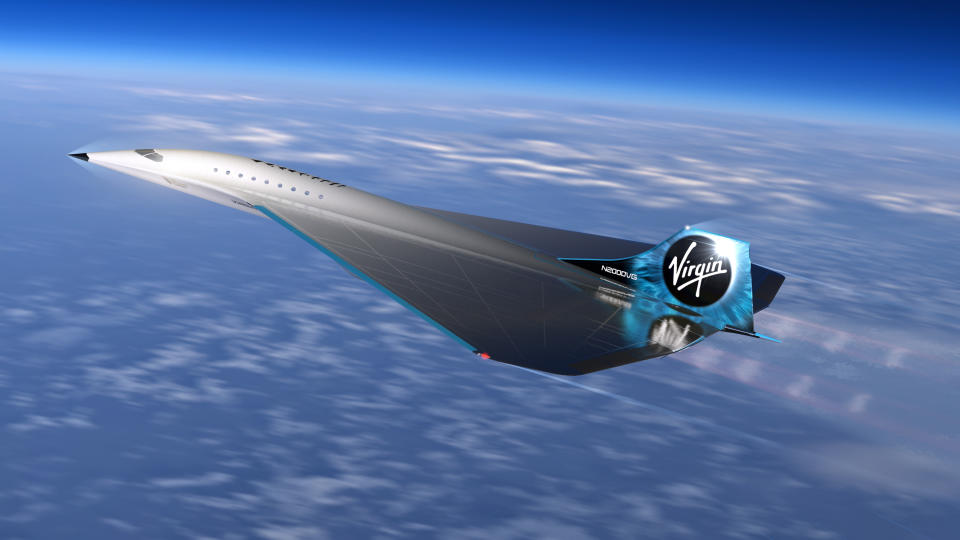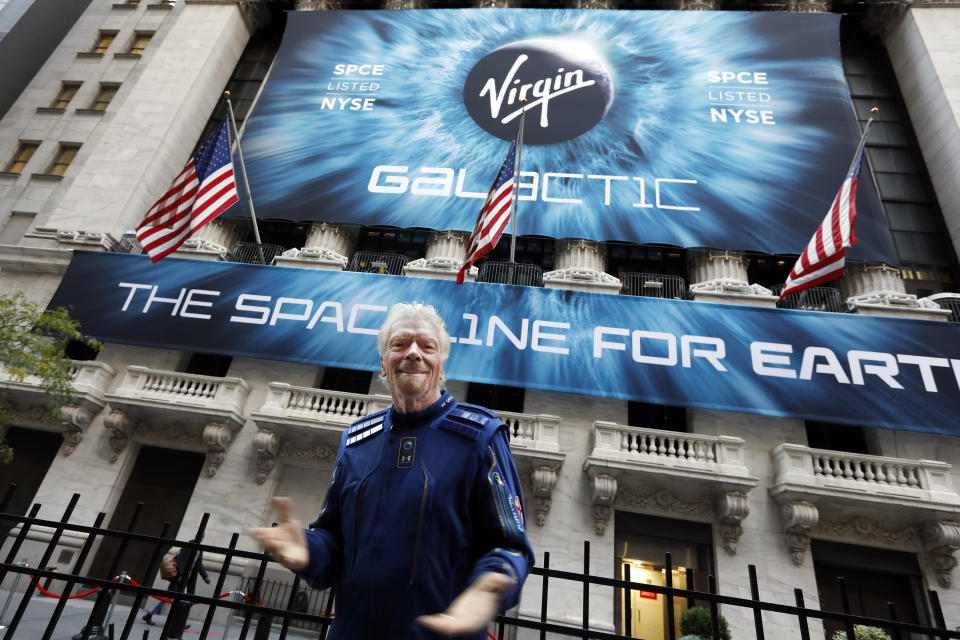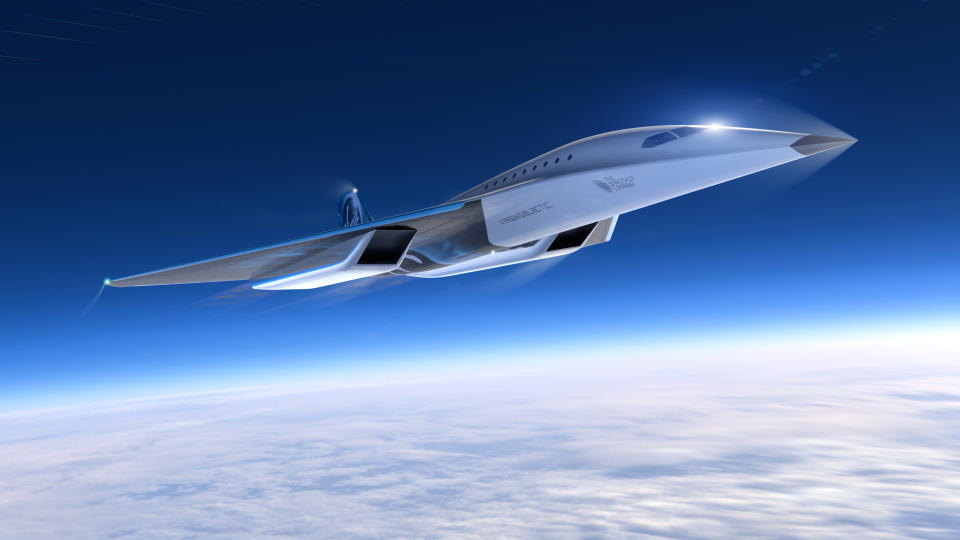Virgin Galactic unveils supersonic jet that will fly from London to New York in 90 minutes

Virgin Galactic is developing a supersonic jet that will fly passengers from London to New York in 90 minutes.
The aircraft would fly between nine and 19 passengers and crew at three times the speed of sound at an altitude above 60,000ft – twice as high as a commercial plane.
The company has partnered with engine-maker Rolls-Royce to build the business jet, which could travel from London to Sydney in just five hours.

The delta-wing plane, capable of speeds of Mach 3, will take off and land like any other passenger jet at existing airports.
Read more: Schools reopening in autumn 'not up for debate' insists government
Sir Richard Branson’s company said it has signed an agreement with Rolls-Royce to collaborate in designing and developing engine propulsion technology for the commercial plane, as it unveiled the first design of the coming aircraft.
The partnership with Rolls-Royce, which built engines for Concorde, the only civil-certified supersonic aircraft, comes after the Virgin Galactic programme cleared a mission concept review that included representatives from Nasa.


The US Federal Aviation Administration (FAA) is also working with Virgin Galactic to outline a certification framework, said George Whitesides, chief space officer at Virgin Galactic.
Read more: Mars ‘was once covered in ice sheets’
He said: “We are pleased to collaborate with the innovative team at Rolls-Royce as we strive to develop sustainable, cutting-edge propulsion systems for the aircraft, and we are pleased to be working with the FAA to ensure our designs can make a practical impact from the start.
“We have made great progress so far, and we look forward to opening up a new frontier in high-speed travel.”
Separately, Virgin Galactic plans to fly to space early next year.

 Yahoo News
Yahoo News 
